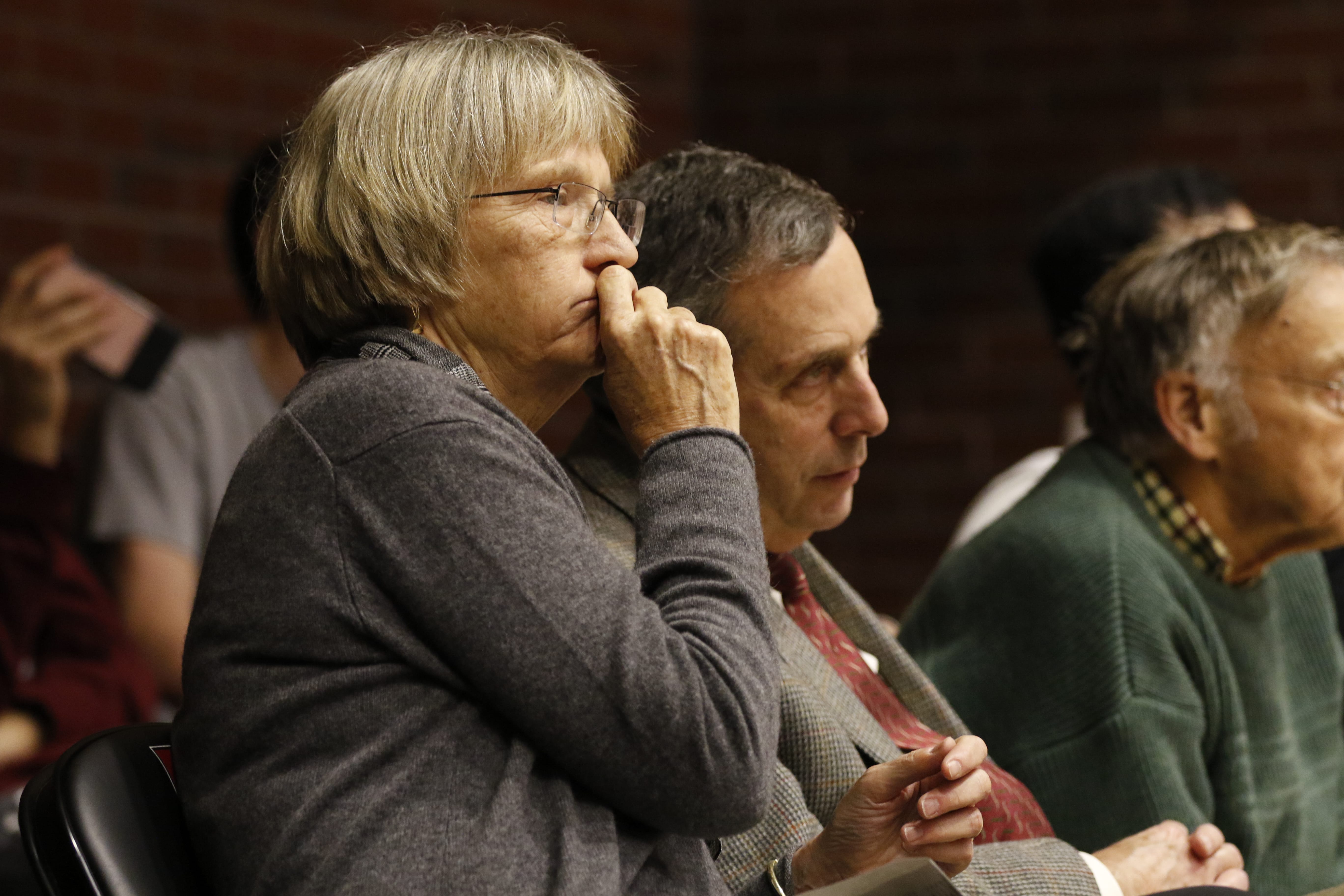The Class of 2019 experienced Harvard under two presidents: Drew G. Faust and Lawrence S. Bacow. A year after she left office, Faust’s approval rating among respondents — 47 percent — is 10 percentage points higher than Bacow’s, which stands at 37 percent. Roughly equal proportions of respondents said they hold unfavorable opinions of each president: 18 percent view Faust unfavorably, while 20 percent view Bacow unfavorably. Forty-three percent of students indicated they do not have an opinion of Bacow, compared to 35 percent who did not have an opinion of Faust — a difference that likely reflects the fact that Bacow is still relatively new to the job.
Former University President Drew G. Faust
Faust occupied the corner office in Massachusetts Hall for three of the Class of 2019’s four years on campus. During that time, Faust announced controversial sanctions against members of single-gender social organizations. She also brought a record-breaking capital campaign to a close and stepped up Harvard’s lobbying activity in Washington during the early years of the Trump presidency.
- The Class of 2019 is less keen on Faust than was the Class of 2018: The proportion of respondents who reported viewing Faust favorably dropped eight percentage points from last year.
- Of respondents who reported holding a favorable view of Faust, 34 percent have at some point belonged to a final club, sorority, fraternity, or other off-campus social organization. Among those who disapprove of Faust, 54 percent have belonged to an off-campus social organization.
University President Lawrence S. Bacow
Bacow, who formerly served as a member of the Harvard Corporation, was announced as the University’s 29th president in February 2018 after a seven month-long search. He took office in July, meaning the Class of 2019 has experienced Harvard under Bacow for less than a year. In that time, though, Bacow has already faced several controversial issues, including campus activism calling on Harvard to divest its endowment from fossil fuels and private prisons. Bacow argues that the University should not divest from either.
- Students who reported supporting fossil fuel divestment are relatively divided on Bacow: 25 percent like him, 32 percent don’t, and 43 percent reported either having no opinion or not enough information to form an opinion. Sixty-three percent of respondents who think Harvard should not divest from fossil fuels have a positive opinion of Bacow.
- Bacow’s approval ratings among students who support divestment from private prisons are similarly mixed. Among those who oppose divestment, 63 percent view Bacow favorably.
Dean of the College Rakesh Khurana
Forty-five percent of seniors view Dean of the College Rakesh Khurana favorably, compared to 55 percent of respondents in the Class of 2018. Thirty-eight percent of students reported viewing Khurana unfavorably, an increase of six percentage points from last year. Seventeen percent did not offer an opinion.
- Khurana has largely become the campus face of the College’s social club sanctions, unveiled when the Class of 2019 were freshmen. Twenty-five percent of respondents who view Khurana favorably joined an off-campus social organization while at Harvard, compared to 57 percent of those who hold a negative opinion of the dean.
- Students who reported viewing Khurana favorably also tended to approve of Harvard’s social club sanctions. Seventy-five percent of respondents who disapprove of Khurana also dislike the sanctions.
Dean of the Faculty of Arts and Sciences
- Survey results appear to indicate that Harvard undergraduates do not pay much attention to the FAS dean. More than 70 percent of respondents reported either having no opinion — or not enough information to form an opinion — on former Dean of the Faculty of Arts and Sciences Michael D. Smith and current FAS Dean Claudine Gay.
